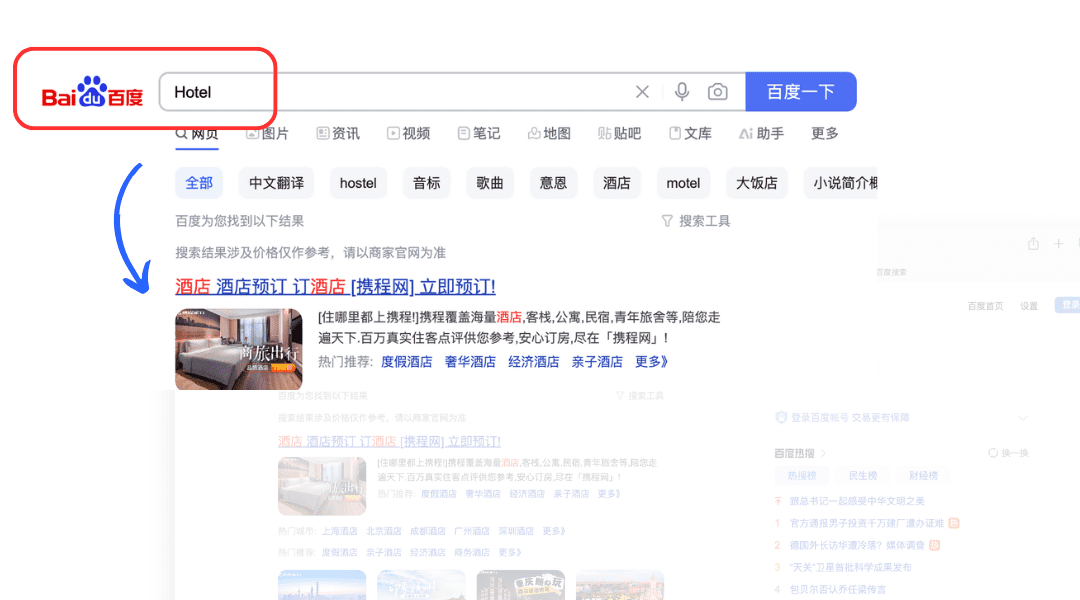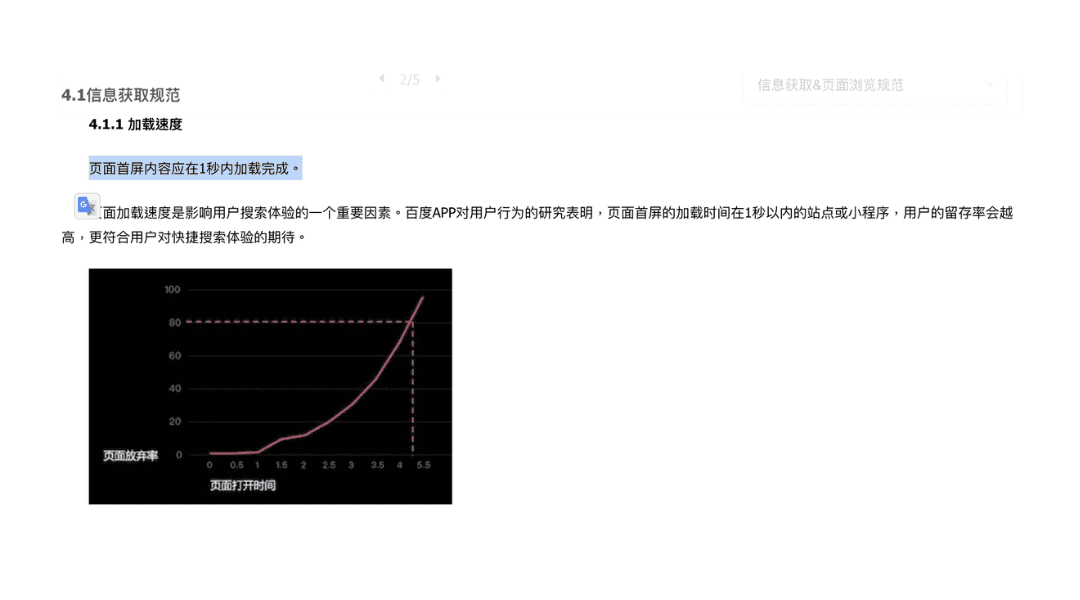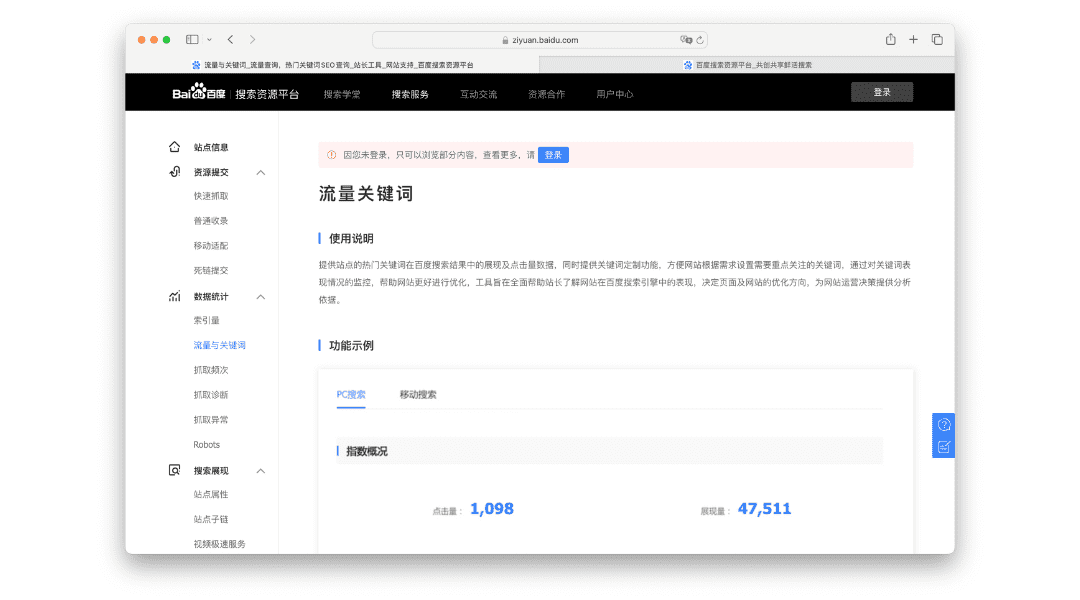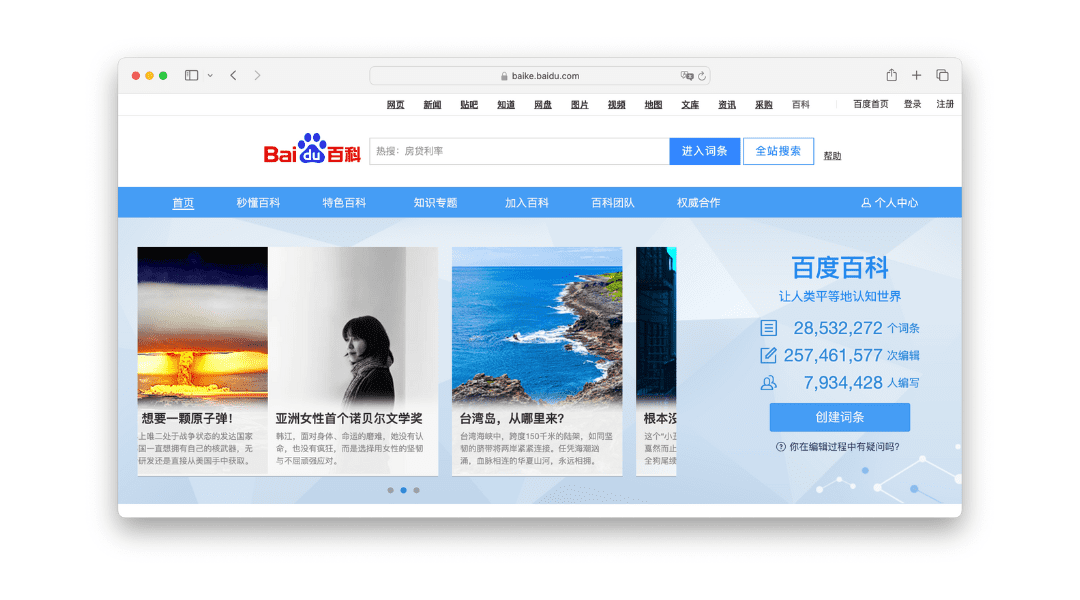1 - Expected post-Chinafy results
What is Baidu SEO and How Do I Get Started?
If your business is looking to expand into China (or perhaps you’re already targeting China), you’ll want to understand Baidu SEO as a key component to making your brand visible to Chinese consumers.
Baidu is the leading search engine in China, holding over 70% of the market share. Broadly speaking, it’s the Google of China—but with its own set of unique features, algorithms, and user preferences.
So, what is Baidu SEO and how does it differ from other search engine optimization like Google SEO? In this article, we’ll cover the answers to your Baidu SEO questions and also provide actionable steps to help you rank higher on Baidu.
TL;DR: Baidu SEO involves optimizing your website specifically for Baidu's unique algorithms and local user preferences. This can include optimizing in Simplified Chinese, hosting onshore, ensuring fast page loads, and complying with local content regulations. For businesses looking to expand into China using their existing website, even partial implementation of these practices can yield better visibility.
What is Baidu SEO?
Baidu SEO refers to the set of practices that help improve your website's visibility specifically on Baidu, China's leading search engine. Unlike Google, Baidu's algorithms have their own unique features, requirements, and preferences that impact rankings.
Baidu is responsible for more than 70% of online searches in China, which makes it a crucial platform for businesses aiming to reach Chinese consumers. To rank well on Baidu, you will need to tailor your strategies specifically for Chinese audiences, taking into account cultural, linguistic, and technical considerations.
How to get started with Baidu SEO
Implementing a successful Baidu SEO strategy requires understanding the unique features of Baidu's algorithms and user preferences. Below, we break down both the key characteristics of Baidu SEO and the steps to help you get started.
1. Localization
Language: For optimal ranking on Baidu, all content—including title tags, metadata, and image alt text—should be in Simplified Chinese. Baidu prioritizes content that is highly localized, making it essential for your website to be accessible and understandable for Chinese users. That being said, if a full localization isn’t feasible, you can consider translating key pages or using a translation plug-in like WPML for WordPress. While manually translated content generally ranks better due to higher quality, even partial localization helps improve how Baidu indexes your site and improves accessibility for Chinese users.

English queries return Chinese results on the Baidu SERP page. Source: Baidu (2024)
Domain & hosting: Baidu tends to favor websites with a .cn domain or those hosted in mainland China. However, many global companies are hesitant to move their hosting to and fortunately this isn’t the only way to rank well on Baidu. If your site is accessible from China and optimized for speed and functionality, it can still rank effectively, even without a .cn domain.
Note: Chinafy can help you achieve near-onshore web performance even if you choose to keep your hosting outside China.
2. Optimize site speed and mobile experience
Site performance: Baidu values fast-loading websites - test yours with Chinafy’s global speed test. Chinafy can help improve load times by addressing slow-loading resources and optimizing content delivery via near-China or China CDNs, depending on where your site is hosted. Note: your site does not need to be hosted within China to achieve strong web performance or to rank well on Baidu.
Getting your site indexed on Baidu, particularly if it’s a new website, isn’t instant. Typically, it takes about 1-3 months from the date you submit a URL for it to appear in Baidu’s index. Moreover, Baidu prioritizes indexing based on how the Baidu Spider assesses your site’s quality. High-quality pages – those that are fast, relevant, and fully interactive on mobile – stand a better chance of getting indexed sooner.
Baidu even says this officially:

“Content above the fold should be loaded in <1 seconds (to be considered Baidu-friendly).” Source: Baidu Zhiyuan (2022)
Mobile optimization: With a large portion of Chinese users browsing on mobile devices, it will work in your favor to optimize for a mobile-friendly design. This includes using responsive design and compressing images for faster mobile loading.
3. Content freshness
Baidu’s algorithm places high importance on content freshness. Compared to Google, which is relatively tolerant of static content, Baidu prioritizes websites that are regularly updated. To maintain or improve rankings, publish new articles, blogs, or updates on a consistent schedule.
4. Metadata and HTML optimization
Title tags & meta descriptions: For pages targeting a China audience, write clear and descriptive titles and meta descriptions in Simplified Chinese. Make sure they contain relevant keywords while being concise enough to display fully in search results.
Meta keywords: Although their importance has waned for Google, meta keywords can still benefit your rankings on Baidu. Include 3-5 relevant keywords that align with your page’s content.
Clean HTML code: Baidu has difficulty crawling JavaScript and Flash. Stick to clean HTML and avoid excessive use of JavaScript, ensuring that all metadata is accessible to Baidu's crawlers.
5. Use Baidu Webmaster tools
Baidu Webmaster Tools are akin to Google Search Console, offering insight into your site’s performance. Using these tools, you can submit URLs for indexing, monitor keyword rankings, and analyze traffic data. Note: if you use Chinafy, we automatically submit your URLs to the Baidu Spider.

A preview of the Baidu Webmaster Tool. Source: Baidu (2024)
6. Try to obtain backlinks from Chinese websites
Backlinks are particularly helpful when trying to improve your ranking on Baidu, but quality matters more than quantity. Baidu prefers backlinks from reputable Chinese websites—such as well-known news outlets, universities, or government sites. Building links from these local sources will help boost your site's credibility and ranking potential.
7. Avoid censorship issues
Ensure your content complies with local regulations to avoid penalties or being completely removed from search results. Baidu is highly vigilant about censoring content that is deemed inappropriate or politically sensitive. If you're unsure, working with local partners can help navigate these complexities.
8. User experience and site structure
A positive user experience is a core component of Baidu's ranking algorithm. Make sure your site is easy to navigate, logically structured, and provides relevant information without excessive clutter. An intuitive structure with clear categories helps users find what they need, increasing dwell time and improving SEO performance.
9. Engage with local platforms
Baidu is more than just a search engine—it also includes platforms like Baidu Zhidao (Q&A forums) and Baidu Baike (a Wikipedia equivalent). By participating in these forums or contributing to Baidu Baike, you can increase your site’s visibility and credibility, ultimately aiding your Baidu SEO efforts.

A preview of Baidu Baike. Source: Baidu (2024)
Summary of best practices
Translate your website or key pages into Simplified Chinese.
Use a .cn domain and host within China if this makes sense for your business.
Optimize your site for faster loading times when accessed from China.
Regularly update website content to maintain freshness.
Ensure metadata is clear, descriptive, and keyword-optimized.
Use clean HTML and avoid JavaScript where possible.
Utilize Baidu Webmaster Tools for performance tracking.
Try to obtain some quality backlinks from reputable Chinese sources.
Ensure compliance with Chinese content regulations.
Optimize for mobile and user experience.
Participate in local platforms like Baidu Zhidao and Baidu Baike.
Baidu SEO can seem challenging but it presents an opportunity to tap into China’s market and ranking on Baidu can be a game changer.
While some strategies may seem similar to those used for Google, Baidu has its own specific requirements that make optimizing for it a distinct process.
To achieve that, businesses need to adapt their content and web performance efforts to align with Baidu’s requirements.
Want to improve your visibility on Baidu and effectively reach Chinese audiences? Get in touch with Chinafy to see how we can help you navigate the complexities of Baidu SEO and optimize your website for China's largest search engine.



1 - Expected post-Chinafy results






























